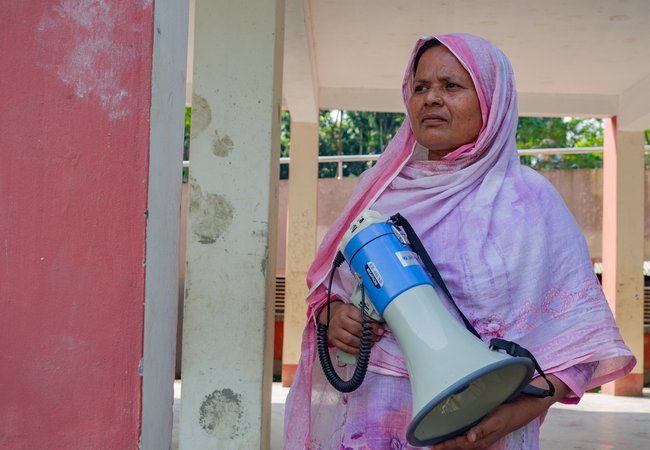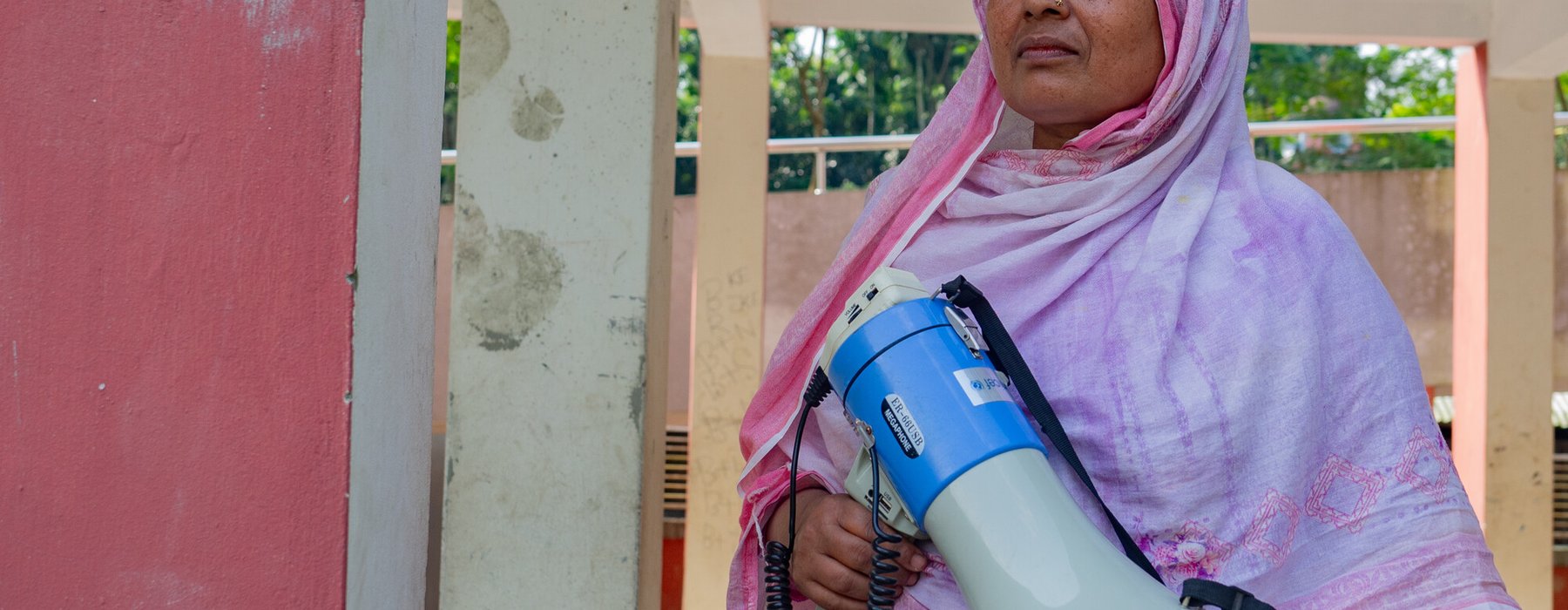- Zakat: Frequently Asked Questions
"Women are vulnerable in disasters, and we understand the needs and priorities of families, so we need to be included in the whole process." Community leader, Dulu Begum who has been working with Oxfam partner JAGO NARI. Image: Elizabeth Stevens


Zakat: Frequently Asked Questions
Find answers to the most popular questions about donating Zakat to Oxfam.
Why is Oxfam offering a way to donate Zakat?
Oxfam provides the opportunity to support the poorest, most vulnerable Muslim majority communities around the world. We have expert teams and partners, history and credibility in some of the world’s more fragile countries where significant levels of Muslim populations are facing extreme hardship.
We also offer a well-established transparent set-up to assure you know where your Zakat donation will go.
What is Zakat?
Zakat is one of the Five Pillars of Islam, an obligatory charitable contribution that financially capable Muslims make to support those in need. It's calculated as a percentage of one's wealth and assets.
Who is obligated to pay Zakat?
Muslims who meet specific criteria of wealth and assets are required to pay Zakat. This includes individuals whose wealth exceeds the Nisab threshold, and it's obligatory for them to fulfil this duty annually.
How is Zakat calculated?
Zakat is typically calculated as 2.5% of one's wealth and assets that have been held for a full lunar year and exceed the Nisab threshold. This includes savings, investments, gold, silver, and other valuables.
Where does Zakat money go?
Zakat funds are distributed to those who fulfil the requirements to being a Zakat recipient. Oxfam GB ensures that Zakat donations are used efficiently and effectively to tackle the root causes of poverty and support sustainable development initiatives.
Can Zakat be given to non-Muslims?
While Zakat is primarily intended for Muslims, there are circumstances where it can be given to non-Muslims in need, such as those facing poverty, hunger, or other hardships.
Oxfam GB ensures that Zakat funds are allocated where they can have the most significant impact, regardless of religious affiliation.
Is Zakat the same as Sadaqah?
Zakat and Sadaqah are both forms of charitable giving in Islam, but they have different purposes and requirements.
Zakat is obligatory and has specific criteria for eligibility and calculation, while Sadaqah is voluntary and can be given at any time and in any amount.
How can I pay my Zakat through Oxfam GB?
Oxfam GB provides various convenient methods for Muslims to fulfil their Zakat obligation, including online donation platforms, bank transfers, and designated Zakat funds.
Donors can specify their Zakat contribution, and Oxfam GB ensures that it is used in accordance with Islamic principles.
Is my Zakat donation tax-deductible?
In some countries, Zakat donations made to registered charitable organisations like Oxfam GB may be eligible for tax relief or deductions.
Donors are encouraged to consult with local tax authorities or financial advisors to understand the tax implications of their Zakat contributions.
Can I designate where my Zakat donation goes?
While donors can specify their Zakat contribution to support Oxfam GB's various programs and initiatives, ultimately, it is allocated based on the organisation's assessment of need and priority areas to maximise impact and address poverty and injustice effectively.
How does Oxfam GB ensure transparency and accountability in Zakat distribution?
Oxfam GB is committed to transparency and accountability in all its operations, including Zakat distribution. The organisation maintains rigorous financial management and reporting processes, conducts regular audits, and adheres to best practices to ensure that Zakat funds are used efficiently, ethically, and in accordance with donors' intentions and Islamic principles.
How will my donation be treated?
An Oxfam dedicated interest free bank account (Lloyds) holds and manages any Zakat donations prior to them being sent to the designated countries. Donations will be spent within one lunar year of you making your payment. Oxfam will acknowledge receipt of all Zakat payments (online payments will be automatically acknowledged immediately, payments through other channels will be acknowledged within 72 hours).
Where possible and should you wish, we will inform you of the help that has come from your Zakat donation. However, given the nature of our programmes in emergency humanitarian responses, this is often not practical or possible.
Will bank charges be taken out of any Zakat donations?
UK administrative costs are not claimed on any Zakat donation and Oxfam does not profit from interest on Zakat payments. 100% of Zakat donations are spent in selected countries to help those in need.
Can Oxfam claim Gift Aid on my Zakat donation?
Yes. If you are a UK taxpayer, Gift Aid can be claimed in the normal manner and will be allocated to Oxfam’s general unrestricted income. Please make sure you provide the requested details when making the payment.
What will happen to my Gift Aid?
Gift Aid reclaimed on your donation will be directed into Oxfam’s general unrestricted income. How Oxfam spends its general unrestricted donations.
How are the donations sent to the selected countries?
Donations will be held in the interest free bank account until such time that they are transferred to the specified country. Each country project that receives the Zakat donations will spend the funds within the lunar year on direct costs in Muslim-majority communities.
Can my donation to be spent in the UK?
Oxfam does not currently use Zakat to fund UK projects. However, we are working in partnership with the National Zakat Foundation, who are supporting our work on tackling poverty in the UK.
Who did you consult when deciding to offer Zakat?
Oxfam met and consulted with several Muslim scholars and leaders along with peers from Muslim development charities. We undertook research that included 485 interviews, ten focus groups and several extensive 1:1 interviews with British Muslims from a range of ethnicities, backgrounds, education, gender and age.
To find out more about Oxfam's work more generally and how you can support us through donations, fundraising, festivals and campaigning, get in touch with our team.